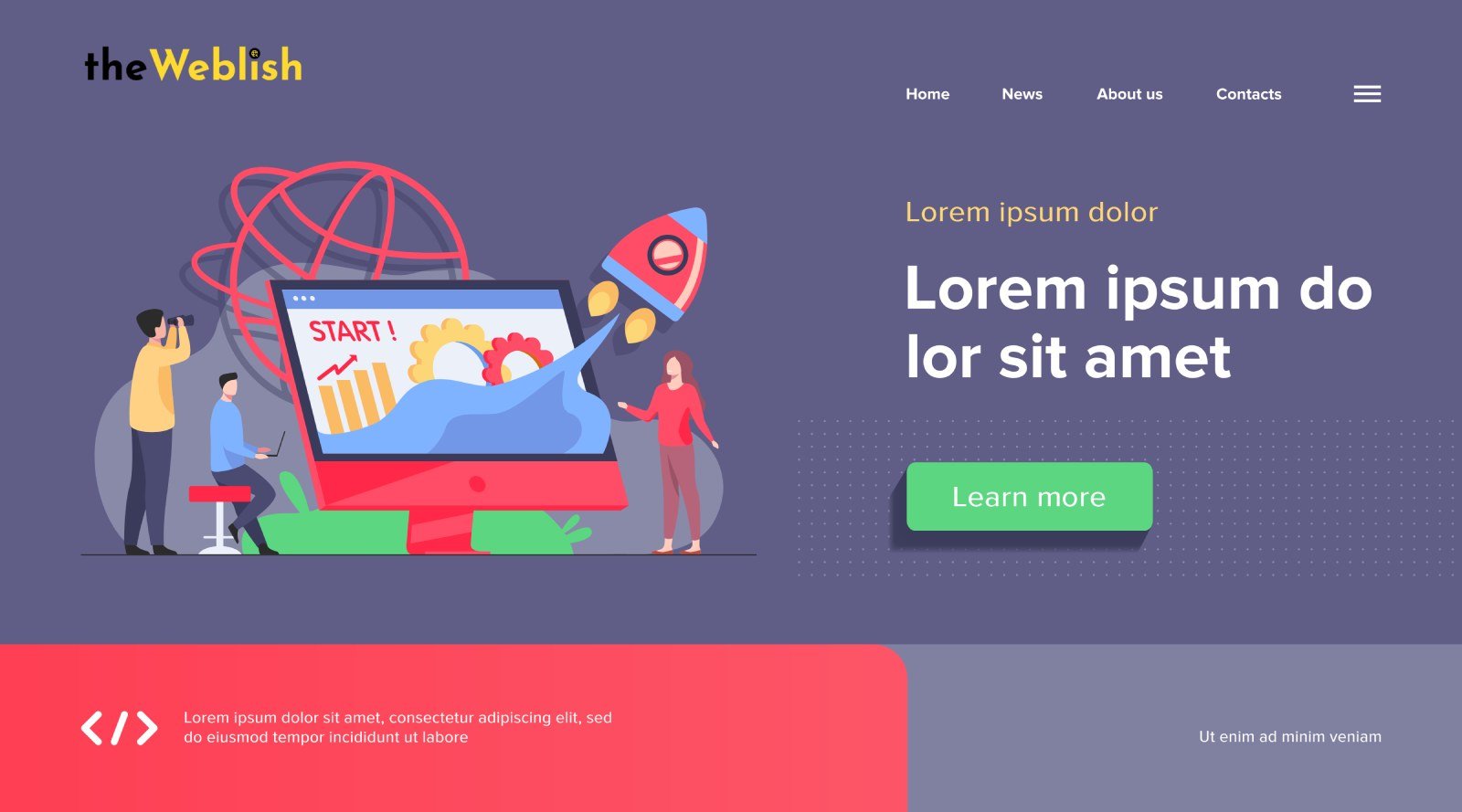In the fast-paced world of digital design, keeping up with the latest website design trends is crucial for staying competitive and ensuring an optimal user experience. As we move into 2024, new trends are emerging that reflect the evolving preferences and technological advancements. This ultimate guide will explore the top website design trends for 2024, providing you with insights to enhance your website's aesthetics, functionality, and user engagement.
Minimalist Design with Maximal Impact
Minimalism continues to dominate the design landscape, but in 2024, it's taking on a new form—minimalist design with maximal impact. This trend emphasizes clean lines, ample white space, and a strategic use of color to draw attention to key elements. The focus is on simplicity without sacrificing functionality, ensuring that users can navigate the site effortlessly.
Key Elements:
- Clean and uncluttered layouts
- Bold typography
- Strategic use of color and contrast
- High-quality visuals
Dark Mode and High Contrast Themes
Dark mode has been gaining popularity for its aesthetic appeal and reduced eye strain. In 2024, expect to see more websites offering dark mode options and high contrast themes. These designs not only look modern but also enhance readability and accessibility for users.
Key Elements:
- Dark backgrounds with light text
- High contrast between elements
- Customizable themes for user preferences
- Improved readability and visual appeal
Immersive 3D Visuals and Interactive Elements
Advancements in web technologies are making it easier to incorporate 3D visuals and interactive elements into website designs. These features create a more immersive and engaging user experience, allowing visitors to interact with the site in unique ways.
Key Elements:
- 3D graphics and animations
- Interactive user interfaces
- Augmented Reality (AR) and Virtual Reality (VR) integration
- Enhanced user engagement
Micro-Interactions and Micro-Animations
Micro-interactions and micro-animations are subtle yet powerful tools for improving user experience. These small design elements provide feedback and enhance the interactivity of a website, making it more engaging and user-friendly.
Key Elements:
- Button animations
- Hover effects
- Loading indicators
- Interactive feedback
Voice User Interface (VUI)
As voice search becomes increasingly popular, integrating Voice User Interface (VUI) into website design is becoming a key trend. VUI allows users to interact with websites using voice commands, offering a hands-free and efficient way to navigate and access information.
Key Elements:
- Voice search capabilities
- Voice commands for navigation
- Integration with virtual assistants
- Enhanced accessibility
AI and Machine Learning Integration
Artificial Intelligence (AI) and Machine Learning (ML) are transforming the way websites interact with users. From personalized content recommendations to chatbots and automated customer service, AI and ML are enhancing user experiences by providing tailored and responsive interactions.
Key Elements:
- Personalized content and recommendations
- AI-powered chatbots
- Predictive analytics for user behavior
- Enhanced user experience through automation
Mobile-First Design
With mobile device usage continuing to rise, designing websites with a mobile-first approach is more important than ever. Mobile-first design ensures that websites are optimized for smaller screens, providing a seamless user experience across all devices.
Key Elements:
- Responsive design
- Touch-friendly navigation
- Fast loading times on mobile devices
- Simplified and intuitive interfaces
Sustainable and Ethical Design
Sustainability and ethical considerations are becoming integral to website design. Users are increasingly aware of the environmental and social impact of their online activities, and websites that reflect these values can build trust and loyalty.
Key Elements:
- Eco-friendly hosting solutions
- Sustainable design practices
- Transparency in data usage
- Inclusive and accessible design
Asymmetrical Layouts
Breaking away from traditional grid layouts, asymmetrical designs are gaining traction for their dynamic and visually interesting compositions. Asymmetrical layouts create a sense of movement and uniqueness, capturing users' attention and encouraging them to explore the site further.
Key Elements:
- Non-traditional grid structures
- Overlapping elements
- Varied visual hierarchy
- Creative use of space
Inclusive Design and Accessibility
Ensuring that websites are accessible to all users, including those with disabilities, is not just a trend but a necessity. Inclusive design practices ensure that everyone can access and interact with your website, improving user experience and compliance with legal requirements.
Key Elements:
- Text alternatives for non-text content
- Keyboard navigability
- Screen reader compatibility
- High contrast and readable fonts
Conclusion
Staying ahead of the curve in website design requires an understanding of emerging trends and the ability to adapt to changing user preferences and technological advancements. By incorporating these 2024 website design trends, you can create a website that not only looks modern and attractive but also offers an exceptional user experience. Focus on minimalism, interactivity, accessibility, and sustainability to ensure your website remains relevant and engaging in the year ahead.
Incorporating these trends into your website design strategy will help you attract and retain users, enhance your brand's online presence, and stay competitive in the ever-evolving digital landscape. Whether you're redesigning an existing site or starting from scratch, these insights will guide you towards creating a cutting-edge, user-friendly website that meets the needs and expectations of today's internet users.
